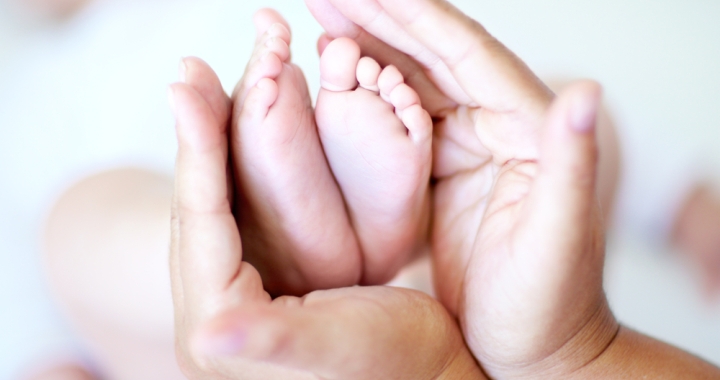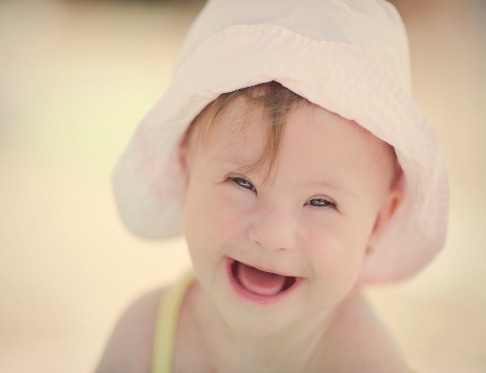
Britain’s Human Fertilisation and Embryology Authority (HFEA) has given approval for the creation of three-parent babies. In what was the last hurdle for the medical technique, described as ‘editing’ of human DNA, the HFEA cleared the way for the first three-parent babies to be created in 2017, making Britain the first country to officially licence the procedure. The treatment, mooted as a ‘sidestepping’ of inherited mitochondrial defects in a woman’s eggs sees doctors remove the nucleus from the mother’s egg, place it in a healthy donor egg, then fertilise it. In response to the move, the Christian Institute reiterated its warning of the as yet unseen effects of tampering with the human reproductive line. “There are very real safety fears because the genetic changes will be passed down the generations. No-one knows if this is safe,” said Humphrey Dobson, the institute’s deputy director.

The Irish Society for the Prevention of Cruelty to Children (ISPCC) has sounded a warning over children’s unsupervised access to the internet. Following a survey of young people and their internet habits, the organisation found that online activity goes largely unmonitored, placing children at risk. The ISPCC warned of an increase in the number of children engaging with strangers online. The survey further revealed that many children believe the purpose of social media is to insult others and that this is normal behaviour. ISPCC CEO Grainia Long said: “Evidence from our services shows the scale and nature of online activity by children and young people, and how much work is needed to keep them safe online. Cyber safety is the child protection issue of our time; we are only beginning to understand the scale and nature of harm and criminal behaviour towards children online.”

A South African court ruling on euthanasia which had broad implications for the country has been overturned on appeal. In 2015, the nation’s High Court ruled in favour of a man seeking to die by assisted suicide, signalling a challenge to the constitutional protection for the right to life. However, the plaintiff died before the court’s ruling could be enacted and the South African government then launched an appeal to the Appeals Court. That court has now ruled that “the claim ceased to exist once the applicant died before the order could be granted” and that euthanasia remains “illegal and prosecutable”. Reacting to the successful appeal, Justice spokesperson Mthunzi Mhaga said: “The Ministers of Justice and Minister of Health are relieved that the order was set aside given the far-reaching implications the judgment had on the constitutionally-entrenched right to life”.




Ireland is experiencing an increased diversity of family types, according to a new study from researchers at Trinity College Dublin and Maynooth University. According to findings contained in ‘Family Rhythms’, the book resulting from interviews with 240 family members, while the commitment to the traditional family unit endures in Ireland, numerous types of family structure have evolved in line with the country’s changed economic and social reality. Among those findings are a greater reliance on the support of grandparents in child-rearing, greater involvement by fathers, but also division in educational achievement between single and two-parent families. In this latter category, children growing up in single-parent, female-headed families experience a distinct disadvantage against more affluent families who continue to dominate in the “concerted cultivation” of their children’s education, by deliberately investing in extra-curricular activities and grinds.
US legislators have been criticised for removing a religious freedom amendment from a bill after lobbying from secular groups. At the heart of the row was the Defence Authorisations Bill, which was being held up amid wrangles between Democrats and Republicans over the inclusion of the Russell Amendment, a device to prevent religious groups or charities being sanctioned for operating according to Christian principles. Democrats threatened to hold up the defence legislation unless the Russell element was dropped, a move backed by groups such as the American Civil Liberties Union. Reacting to the removal of Russell, Kristina Arriaga, executive director of the Becket Fund for Religious Liberty said: “Because Congress ducked this important issue, more service providers will be unable to continue offering their critical services, services that are sometimes only offered by religious groups. It is the refugees, homeless, trafficking victims, veterans, and other vulnerable populations who will suffer the most from Congress’s choice to prioritise political expediency over principled governance.”

An Australian court has cleared the way for a five-year-old boy to undergo surgery in order to become more female. The parents of the child, identified only as Carla, had argued before the court that their child has always exhibited “stereotypically female” behaviour and never wanted to be referred to as male. The court ruled that Carla’s parents need no permission to arrange surgery for the boy, accepting medical arguments that without it, Carla’s physical and mental health would suffer.

A pro-life television advertisement showing Down’s syndrome children living full and happy lives has been banned in France to ‘protect the consciences’ of women who have undergone an abortion after that foetal diagnosis. The ban, originally imposed on ‘Dear Future Mum’ by the French Broadcasting Council, has now been upheld by the country’s highest court, the Council of State which ruled the advertisement “inappropriate”. Renate Lindeman, spokesperson for Downpride, the international lobby group for people with Down’s said: “Our kids are banned from public television because their happy faces make post-abortion women feel uncomfortable. What’s next? Will kids with Down syndrome be banned from school? Will they be segregated from society and placed in institutions like in the old days, because their presence upsets post-abortion parents?”